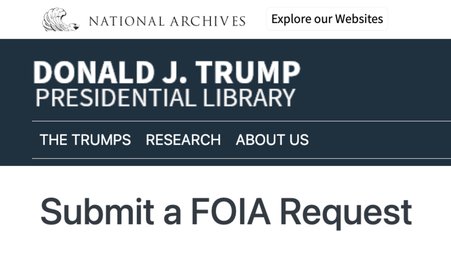Elon Musk has said he thinks there should be no need to file Freedom of Information Act requests because all government records should be public by default.
That’s a remarkable stance from someone whose company tries to hide its government correspondence from FOIA requesters.
The newly created Department of Government Efficiency, over which Musk exerts remarkable influence, is an opportunity for him to put his money — or in this case, his documents — where his mouth is, and make DOGE’s records public, either proactively or in response to records requests.
From advisory panel to federal program
DOGE was long touted as a panel that would “provide advice and guidance from outside of government” to slash agency regulations and restructure the federal bureaucracy.
But that didn’t pan out.
The Jan. 20 executive order establishing DOGE says it will very much be a part of the federal government.
Why the change? Musk reportedly decided that if DOGE were a part of the government, it would be easier to avoid the Federal Advisory Committee Act’s requirements that advisory panels make all of their committee meetings and documents public.
By placing DOGE within the government, Musk may have effectively bet that he can more easily flout FOIA than FACA.
Is the federal government the safest place to hide records?
The executive order creating DOGE states it will be a reorganization of the existing United States Digital Service, a team that tackles technology implementation problems across the federal government. It will now be known as the United States DOGE Service.
This means it will be subject to FOIA.
The service is a component of the Office of Management and Budget, which in turn is part of the Executive Office of the President. While it’s a common misconception that FOIA doesn’t apply to the EOP, that’s not entirely true.
FOIA does not apply to the president, vice president, their immediate staffs, or any EOP office that exists solely to advise the president. These offices include the President’s Foreign Intelligence Advisory Board and the National Security Council.
But FOIA does apply to a handful of EOP offices that have broader statutory requirements. In addition to OMB, these offices are:
- the Council on Environmental Quality
- the Office of National Drug Control Policy
- the Office of Science and Technology Policy
- the Office of the United States Trade Representative
The good news is that the public should be able to request information from DOGE through OMB’s FOIA process, as long as DOGE remains at OMB.
There is some bad news.
OMB’s FOIA site has been offline since Monday. Maybe Musk’s engineers just haven’t gotten around to fixing it yet?
Could DOGE records become presidential records?
It’s not a given that DOGE will stay at OMB.
DOGE could make the argument that it exists solely to advise the president and should not be subject to FOIA. This would likely require making DOGE an independent office within the EOP, or moving it out of OMB and into, for example, the White House Office of Administration.
If this happened, DOGE’s records would be subject to disclosure under the Presidential Records Act. Presidential records may be requested through FOIA no sooner than five years after a president leaves office, although release often takes much longer. (There is an estimated 12-year backlog for presidential records at the George W. Bush Library, and many of those records were created nearly 25 years ago.)
A larger problem is ensuring presidential records are being created and preserved in the first place. The first Trump administration routinely flouted the PRA’s preservation requirements, and ensuring timely preservation of presidential records can be even more challenging than under FOIA because of the mandatory minimum five-year wait.
This begs our earlier question: Does Musk think that placing DOGE within the government will make it easier to hide its records?
If so, let’s prove that troubling assumption wrong.
If DOGE stays at OMB, members of Congress should pay special attention to its FOIA administration over the next several months. If it is not being appropriately implemented, then Sunshine Week, which celebrates public records laws every March, would be an appropriate time for them to ask Musk why the agency responsible for making the government more efficient can’t seem to respond to basic FOIA requests.





